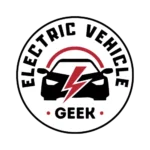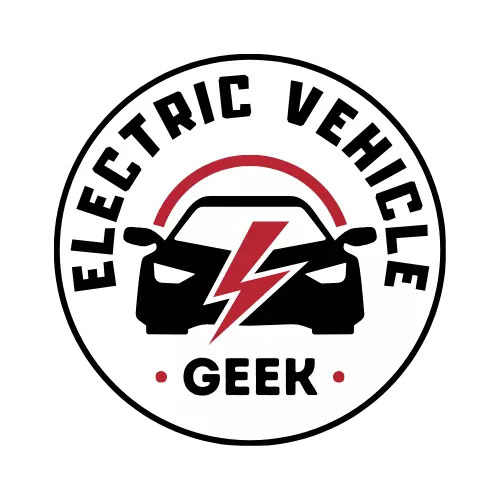How to Use Our EV Charger Filter
Finding the perfect EV charger for your home or business can be overwhelming with so many options available. That’s why we’ve designed a powerful EV charger filter to help you quickly narrow down chargers that meet your exact needs.
Follow this guide to get the most out of our filter.
Understand the Filter Categories
Our EV charger filter is divided into four main categories (brand, compatibility and connection, performance and speed, features and safety), each allowing you to filter chargers based on specific technical specifications, installation needs, or extra features.
Step 1: Start by Choosing a Brand
The first step in finding the right EV charger is selecting a brand you trust. We have a wide range of reliable and popular brands to choose from, ensuring quality, performance, and support.
Brands We Have: Aimiler, Anker, ApexCharger, Autel, Bokman, BougeRV, ChargePoint, Emporia, Enphase, Evgoer, Eviqo, EvoCharge, Grizzl-E, J+, JuiceBox, Lectron, Megear, Mustart, Pergear, Schumacher Electric, Tesla, TYPE S, Wallbox, Webasto, and WOLFBOX.
Step 2: Select Compatibility & Connection
The next step is to verify that the charger is fully compatible with both your vehicle and your home’s electrical system by selecting your EV connector type and desired power input options.
If an EV charger doesn’t have a compatible connector with your EV charging inlet, or its power input doesn’t match your home’s EV charging branch circuit power capabilities, it won’t be a practical choice.
To simplify this process and minimize errors, we’ve integrated visual icons within the filter options to clearly walk you through each step.
- Connector Type: We test and review AC home EV chargers with both J1772 and NACS plugs, as our focus is on home EV charging solutions. Be sure to choose a charger that matches your vehicle’s inlet.
- Electrical Connection: We have Hardwired, NEMA 10-30, NEMA 14-30, NEMA 14-50, NEMA 14-60, NEMA 5-15, NEMA 5-20, NEMA 6-20, and NEMA 6-50 EV chargers. Pick one that matches your home’s wiring.
Step 3: Choose Performance & Speed
Once compatibility is confirmed, focus on charging speed and power. These filters help you select a charger that meets your needs efficiently.
- Charging Level: We have Level 1 EV chargers (slower, standard outlets) and Level 2 EV chargers (faster, higher voltage).
- Power (kW): We have tested and reviewed 1.44 kW up to 19.2 kW EV chargers.
- Voltage (V): We have 110V, 120V, 208V, and 240V EV chargers to match your home’s electrical supply.
- Rated Current (A): We have reviewed 12A to 80A maximum-rated EV chargers, allowing you to perfectly match the charger with your EV onboard charger and electrical panel.
- Adjustable Current (A): For future proofing your installation, we have 6A to 80A adjustable amperage EV chargers that let you adjust charging speed for flexibility or electrical safety.
Step 4: Select Features & Convenience
Next, consider lifestyle and usability features. These are nice-to-have, and can greatly improve your charging experience.
- Smart Features: Smart features in EV chargers allow connectivity via Wi-Fi or Bluetooth. These features include app control, scheduling, and energy monitoring.
- Cable Length: Our EV charger reviews listing includes EV chargers with cables ranging from 16 to 30 feet long. Check your garage or driveway layout to make sure the cable length is sufficient to reach your charging point.
Step 5: Check Safety & Certifications
Finally, ensure the charger is safe and certified. Safety should never be skipped.
- Safety Features: We have reviewed EV chargers with inbuilt safety features such as overcurrent protection, ground-fault protection, and other built-in protections.
- Certifications: You will also find UL-listed, ETL-certified, and Energy Star-certified chargers by checking/selecting the safety-certified option.
Learn more about important safety features in our guide: EV charger safety features to consider when choosing an EV charger, and our EV chargers’ safety guidelines
Step 6: Apply Filters and Compare
Select your desired options in each filter category (Multiple filters can be applied simultaneously).
Apply the filter to view chargers that match your specifications.
Using these filters, you can confidently select an EV charger that fits your needs, your electrical system, and your vehicle.

James Ndungu is a certified EV charger installer with over five years of experience in EVSE selection, permitting, and installation. He holds advanced credentials, including certification from the Electric Vehicle Infrastructure Training Program (EVITP) and specialized training in EV charging equipment and installation, as well as diplomas in EV Technology and Engineering Fundamentals of EVs. Since 2021, James has tested dozens of EV chargers and accessories, sharing expert insights into the latest EV charging technologies.

